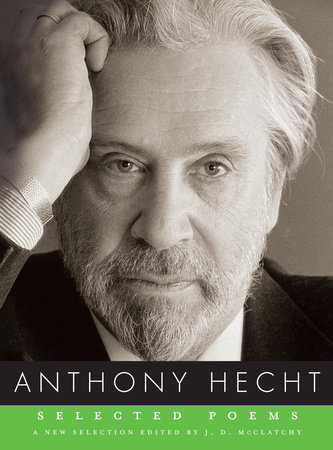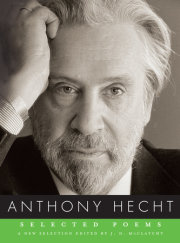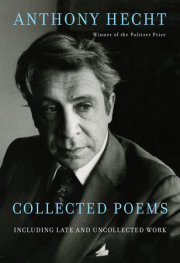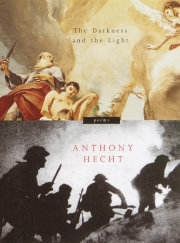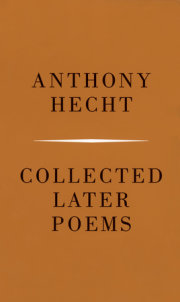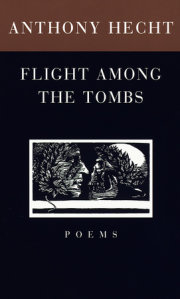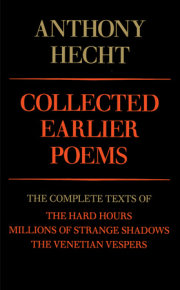Alongside Wallace Stevens, James Merrill, and other pillars of twentieth-century poetry, Anthony Hecht joins the Borzoi Poetry series.
Hecht, whose writing rings with the cadences of the King James Bible, and who, as an infantryman at the end of World War II, participated in the liberation of the concentration camps, lived and experienced the best and worst of the twentieth century. Readers of this volume—the first selected poems to be made from Hecht’s seven individual volumes—will be captivated by Hecht’s dark music and allusions to the literature of the past. As J. D. McClatchy explains in his introduction, Hecht was a poet for whom formal elegance was inextricably bound up with the dramatic force, thematic ambition, and powerful emotions in each poem. The rules of his art, which he both honored and transformed, are “moral principles meant finally to reveal the structure of human dilemmas and sympathies.”
This elevated sense of what poetry can accomplish defines our experience of reading Hecht, and will ensure his place in the canon for years to come.
Adam and Eve knew such perfection once,
God’s finger in the cloud, and on the ground
Nothing but springtime, nothing else at all.
But in our fallen state where the blood hunts
For blood, and rises at the hunting sound,
What do we know of lasting since the fall?
Who has not, in the oil and heat of youth,
Thought of the flourishing of the almond tree,
The grasshopper, and the failing of desire,
And thought his tongue might pierce the secrecy
Of the six-pointed starlight, and might choir
A secret-voweled, unutterable truth?
—from “A Poem for Julia”

